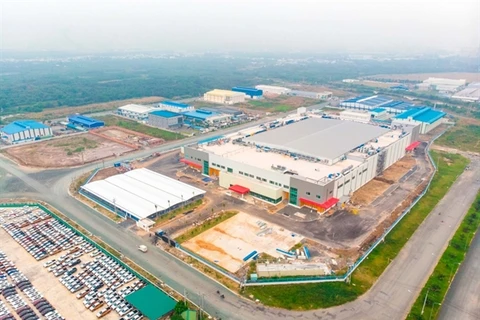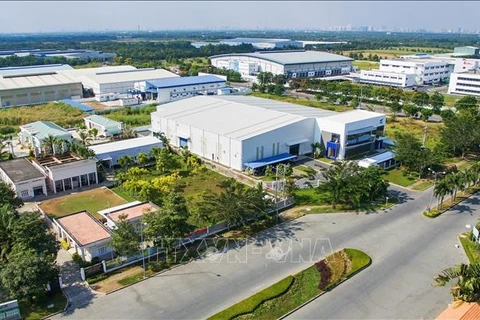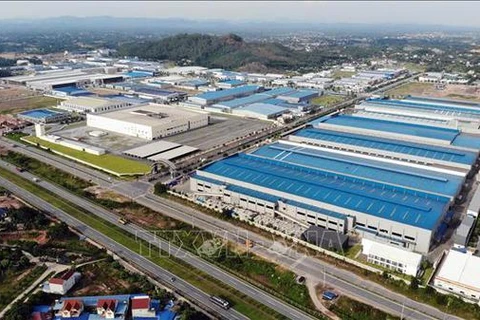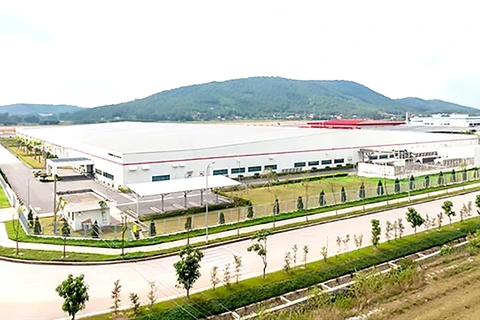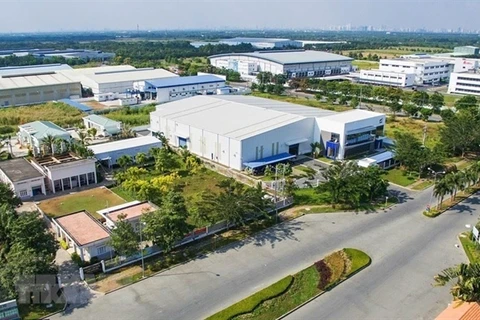 As many as 406 industrial parks (IPs) have been set up in Vietnam, and their occupancy rate is about 70.9% (Photo: VNA)
As many as 406 industrial parks (IPs) have been set up in Vietnam, and their occupancy rate is about 70.9% (Photo: VNA) Hanoi (VNA) – Vietnam’s industrial real estate in Vietnam has the potential to grow as demand continues to rise due to a shift in supply chain to the country, according to Savills Vietnam.
As many as 406 industrial parks (IPs) have been set up nationwide so far, but this figure still needs to be improved to meet the demand, the real estate company said.
Data from Savills Vietnam shows that the occupancy rate in IPs now stands at 70.9%, equivalent to the rate recorded at the end of 2020.
Pham Huu Thang, former Director of the Foreign Investment Agency at the Ministry of Planning and Investment, said most industrial land has been zoned for production while logistics and support facilities need more space to develop.
Therefore, new IPs are expected to have more detailed planning and provide more space for logistics, commercial and service functions, data centres. The Government is also striving to improve the process for handling investment procedures to facilitate the development of new IP projects, he added.
John Campbell, head of industrial services at Savills Vietnam, said many IPs in industrialised economies are switching to a more environmentally friendly model, so IPs in Vietnam will also develop in this direction sooner or later.
Taking Deep C in Hai Phong as an example, he noted it is one of the first IPs in Vietnam to adopt the model to attract foreign manufacturers.
The specialist also highlighted that no other countries in Southeast Asia have joined as many free trade agreements as Vietnam, which also helps enhance global producers’ trust in the country. Another advantage is a young and dynamic workforce and a growing middle class in the country.
In terms of IPs’ value growth potential, Campbell held that compared to other markets in Asia and Southeast Asia, profit and output in Vietnam proves attractive to foreign investors.
However, he also pointed out certain challenges to IP development, including surging land prices and compensation costs, a shortage of skilled workers, and infrastructure that has yet to meet demand.
Campbell recommended the Government set up proper orientations to ensure the quantity and quality of workers, with the need to improve transport infrastructure, especially in the southern region./.
